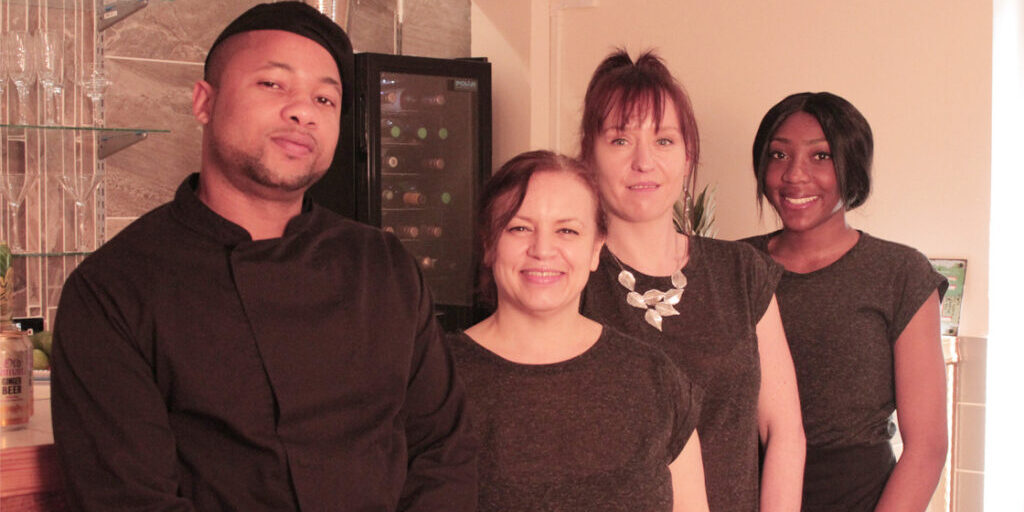Growth Hacking is a marketing technique that combines creativity, analytics and social metrics. Back in 2010, Sean Ellis, a prominent figure in the digital marketing space coined the term Growth Hacker; Sean observed that newly formed digital companies were able to achieve remarkable early growth an example of one of these companies was dropbox.
The way they achieved this growth was through a combination of creativity, analytics and social metrics, these possibilities were the product of the rapid rise of social networks.
Combined with analytics, creativity and a deep understanding of growth channels, a growth hacker can leverage social channels to achieve staggering product and service growth.
Different meanings for hacker
A hacker is someone who thinks outside the box and comes up with strategies and ideas most people wouldn’t, hackers have recently been in the headlines for accessing secret information these are known as illegal hackers, but in the same way they gained access by vulnerabilities in security systems a growth hacker may find success in knowing and exploiting things nobody else thought to do, but of course in a good way and within the law!
The potential growth hacking is great and if you put the right techniques into action it can help you to grow your business. We can learn techniques and lessons from the companies that pioneered growth hacking and used it to great effect one example is AirBnB, take a look for yourself! A growth hacker is similar to a marketer in some ways but they are driven by a smaller focus; which is the growth of a business, and as time passes the chasm between the two disciplines deepens.
Redefining the words product and distribution
Your every-day marketer is very good at understanding traditional products, but due to the internet a product is no longer just physical it can be in the form of software or anything that isn’t well… physical!
The internet has given the world a new kind of product, so we need a new way of thinking to accompany it. Now for distribution; the product is very important and that goes without saying, but how you get the product out there and how you reach the right demographic is not to be overlooked. An example of this which isn’t by the use of the internet is fast food restaurants being on motorway exits, they are reaching out to possible customers at the right place, this is in some ways growth hacking.
What is the difference between marketing and growth hacking?
Although at first sight the roles seem similar they are different in many ways, a marketer has to focus on a range of activities such as brand perception and awareness that have a softer connection to growth whereas a growth hacker will focus on accelerating customer growth.
If anything a growth hacker is a marketer which has restricted their activities to growth alone, they are becoming further and further apart but in all honesty their roots are the same.
Many of the best growth hackers still go by the title of chief marketer for example, after all is a job role just a name?
Now let’s talk about the future of growth hacking it is currently an interesting trend that may reinvent the way future internet based companies work, the roles within these types of companies are coinciding and it makes you think if growth really is the lifeblood of an organisation why shouldn’t it be woven into every aspect of the company?
Analytics: A growth hackers best friend
Analytics is the core of any growth hacker regardless of background, a growth hacker will live and breath analytics this is why…
A while ago marketing was based on emotions and how the marketing of a product makes the audience/potential customer feel now it’s nearly all based on facts and figures.
Before it used to be simple; show some charisma and a unique idea and you will be backed in the board room, now that simply isn’t enough. Analytics uncover how brilliant you are or how well… Not so brilliant you are! At the end of the day results is what everyone wants, and analytics are evidence to results.
Another great thing about analytics and another reason why growth hackers rely so heavily on them is that they make success repeatable, you can see what you’ve done wrong and most importantly you can identify what you’ve done right and therefore repeat the process. Instead of asking yourself questions about what went right you have the evidence and the formula to do it again.
Last of all analytics in some way predict the future, this may seem a strange claim but it’s true, by this we mean making an assumption to what has already been found out to continue happening. Companies make guesses all the time for example what a competitor may do, what the next trend may be, this can be successful but why rely on guessing when you have analytics to show you what probably (not certainly!) will happen?
Growth Hackers are curious and creative
If you’re not being curious enough your product won’t be as interesting and up to date, these days you need to be at the cutting edge of most things to really succeed. As previously said analytics are vital to a growth hacker and honestly analytics come before being curious and creative. But being able to do both wouldn’t hurt right?
Growth hackers are not afraid to try new things and take little risks to pursue an idea that others may not. Curiosity is about getting over fear, if you try something out and it’s wrong it’s a learning curve not a mistake; that’s how you find success by working on the positives and learning from the negatives.
Being a growth hacker is repetitive and obsessive
When you’re a growth hacker you have to be patient and not lose faith after the first few attempts, it could be the 8th idea that is successful or it could be the 390th that’s a risk growth hackers are willing to take!
Being a growth hacker is about trying to find the things that work for your product and your audience, although growth hackers are focused on growth to achieve that many small objectives need to be met.
The process of growth hacking
Good things come to those who wait in the world of growth hacking, and the more time you carefully plan something or carefully analyse something the better chance you get to make improvements or repeat it!
Set yourself achievable yet challenging goals, the bigger goal of growth will happen but you need to set smaller milestones to reach the main one. But if you think about it; with growth there is no goal it’s an ongoing challenge!
Growing a startup business is too much of a broad goal to set but it is a key part of growth hacking you need to have smaller attainable targets that you can mark off small objectives you’ve done which narrow a growth hackers overall goal.
Next growth hackers think about implementing analytics to track their goals, if you’re not using analytics the achievements you make are empty and you don’t really know when a goal has been reached. When using analytics you can collect the data and adjust your goals accordingly depending on progress.
Another part of the growth hacking process is realising your companies (or the company in questions) strengths, and then using these ase leverages to make things easier for yourself, although growth hackers take risks they do like to make things easier for themselves. When their is something that takes little effort at your disposal but is effective then use it, every company will be different and have different leverages! The use of experiments is something else used by growth hackers which starts with a hypothesis of what could happen, you need to give your opinion before it happens to see if your accurate or if you have the completely wrong idea!
What do you do with the visitors you get?
Pulling the visitors in is one part of the growth hacking process, once you have your audience where you want them you want to be perfectly poised, you have to find your ideal audience and where they are online and once this is established you push them towards your product! One good way of getting more traffic or customers is by doing what you do well! By this I mean getting good reviews by existing customers who are then advised to use your services, this happens on a small scale but is still very important to a business that wants to expand. Blogging is a great way to show your audience what you can do and show you are an expert in your field, it’s also handy to post blogs on social media and get traffic to your site this way. As you can probably realise there are many small goals and objectives that go into growth hacking and combined they drive the overall bigger goal of growth!
A few tools that help a growth hacker!
To finish off I’m going to go over a few of the tools and tactics that a growth hacker would use, one thing that is misunderstood is that if you have the tools you will automatically be a great growth hacker; well things aren’t that simple, having the best tools will always benefit you but you have to know what you’re doing to utilise them properly. The tools for a growth hacker are constantly changing and we never know what new technology could be round the corner, but the process will stay the same; for now at least.
KPI (stands for Key Performance Indicator) this is a number you can look at to see how you’re company is doing, for example if you’re selling a subscription service the KPI will simply be the amount of subscriptions you made in a day. This numerical data can help you keep track of your company’s progress and take a look at the trends which then, being a growth hacker helps you form new targets and strategies.
Being viral coefficient is a term related to growth hacking which is the amount of people that are brought to your product or service by your existing customers which as explained earlier is a really good way of gaining trustworthy and faithful customers.
The life time value of a customer is going to be looked at by nearly all sectors and job roles there is, this is calculating how much money you could make off a person during their whole life cycle. Remember those analytics and implement them as often as you can so you can improve success and work on mistakes, good luck on your growth hacking!
Get more leads, make more sales, grow your brand faster.






